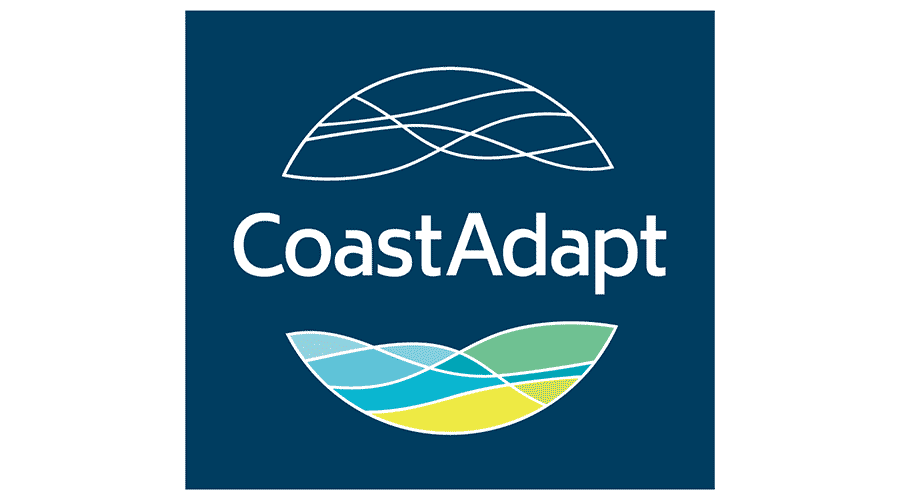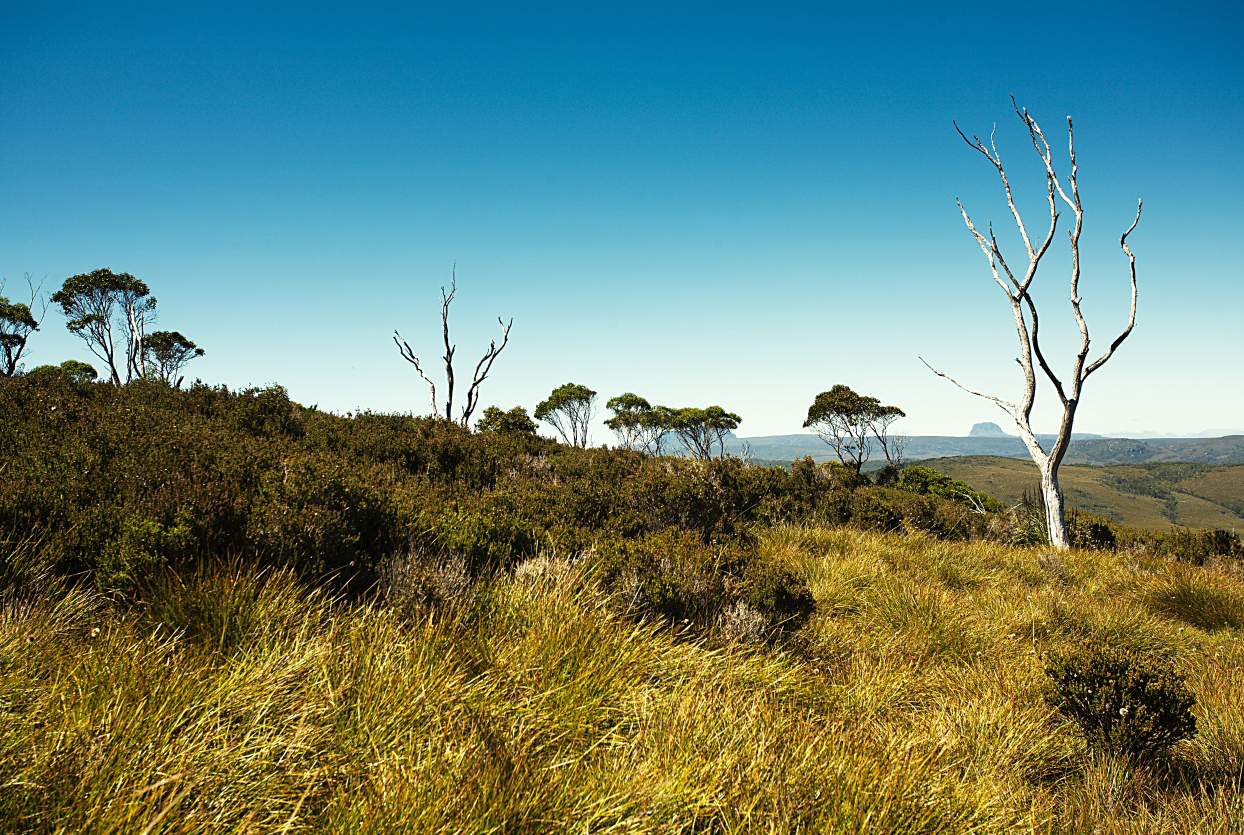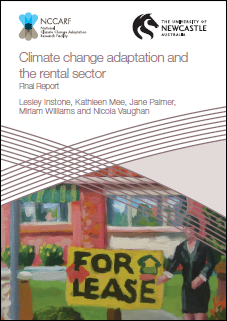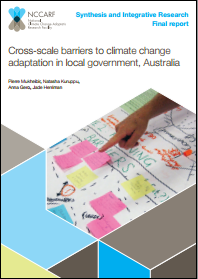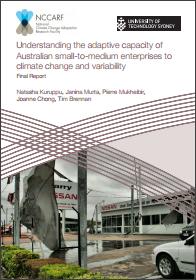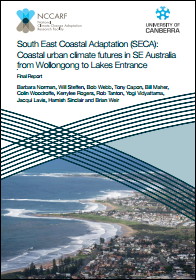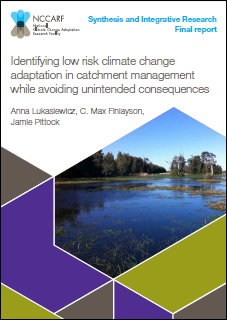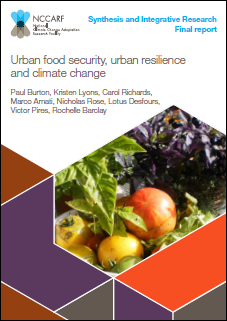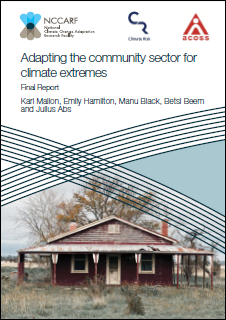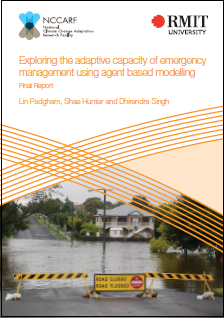NCCARF
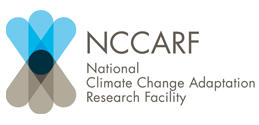
Leading the research community in a national interdisciplinary effort to generate the information needed by decision-makers in government and in vulnerable sectors and communities to manage the risks of climate change impacts.
An initiative of the Australian Government, the National Climate Change Adaptation Research Facility was established in November 2007, and is based at Griffith University’s Gold Coast campus.
The key roles of the Facility include:
- development and implementation of National Adaptation Research Plans to identify critical gaps in the information available to sectoral decision-makers and to set research priorities
- establishing and maintaining adaptation research networks to link together key researchers and assist them in focussing on national research priorities
- synthesising existing and emerging national and international research on climate change impacts and adaptation and developing targeted communication products for stakeholders
- undertaking a program of integrative research to address national priorities; and
- identifying potential funding sources for climate change adaptation research and helping researchers access these funds.
Research Themes
Terrestrial biodiversity
- species and ecosystemlevel impacts of climate change
- ecosystem and ecological community adaptive capacities
- implications for biodiversity management strategies
Marine biodiversity and resources
- biophysical impacts of climate change and climate variability on coastal, estuarine and marine ecosystems, including fi sheries
- social and economic impacts and implications
- adaptation strategies for industries and sectors dependent on the marine environment
Water resources and freshwater biodiversity
- the impacts of climate change on surface and groundwater, inland aquatic and semi-aquatic ecosystems
- the associated social and economic impacts of changed water regimes
- potential adaptation strategies for water managers and users
Primary industries
- impacts of climate change on horticulture, viticulture, livestock, cropping, intensive and extensive farming practices, forestry
- social and economic impacts and implications
- sector- and region-specific adaptation strategies
Human health
- changes to the range and persistence of vector- and food-borne diseases
- the physical and mental health impacts of heat waves and other extreme events
- the social, economic and management implications of these impacts for the Australian health care system and health services
Settlements and infrastructure
- the impacts of climate change on coastal settlements; public and private infrastructure including building and facility design and construction; urban water security; fl ooding and stormwater overflow
- the social, economic and institutional implications of these impacts
- implications for planning, design, and management of settlements and infrastructure
Emergency management
- implications of changes in frequency and intensity of extreme weather events for disaster mitigation, preparedness, response and recovery
- community and organisational resilience
- adaptation strategies in the disaster management and emergency services sectors
Social, economic & institutional dimensions
- cross-cutting analysis of issues such as methods for understanding whole-of-economy impacts
- implications of social and economic trends for vulnerability to climate change
- understanding and developing adaptation strategies for vulnerable communities, especially indigenous and remote communities
- institutional challenges in adapting to climate change.
Adaptation Research Networks
The Facility coordinates Adaptation Research Networks, that bring together researchers and stakeholders addressing each of the priority themes.
These Networks facilitate open exchange of information and sharing of resources; contribute to the implementation of National Adaptation Research Plans and the synthesis of research relevant to a sector or region; and develop the capacity of young researchers.
The networks work closely with the Facility to facilitate the sharing and communication of research outputs, and to ensure that all relevant research expertise is harnessed to identify research needs.
The Network hosts include:
- Terrestrial biodiversity James Cook University
- Marine Biodiversity & Resources University of Tasmania
- Water Resources & Freshwater Biodiversity Griffi th University
- Settlements & Infrastructure University of New South Wales
- Emergency Management RMIT
- Social, Economic & Institutional Dimensions University of Melbourne
- Human Health Australian National University
- Primary Industries Land & Water Australia
Facility Partners
The Facility is a partnership between the Australian Government Department of Climate Change and Griffith University, with a consortium of funding partners drawn from across the country:
- Queensland Government
- James Cook University
- Macquarie University
- Murdoch University
- Queensland University of Technology
- The University of Newcastle
- University of Southern Queensland
- University of the Sunshine Coast.
How to get involved
Research opportunities will be provided through the Facility via initiatives tailored to suit the needs of the eight adaptation research networks.
Updates and information will be available through:
- Our website [1]
- Conferences and workshops
- Publications
If you are interested in participating in the National Climate Change Adaptation Research Networks, the national adaptation research planning process, or if you would like further information or to be added to the Facility’s mailing list, please contact: National Climate Change Adaptation Research Facility Telephone +61 7 5552 9333 [email protected] www.nccarf.edu.au
